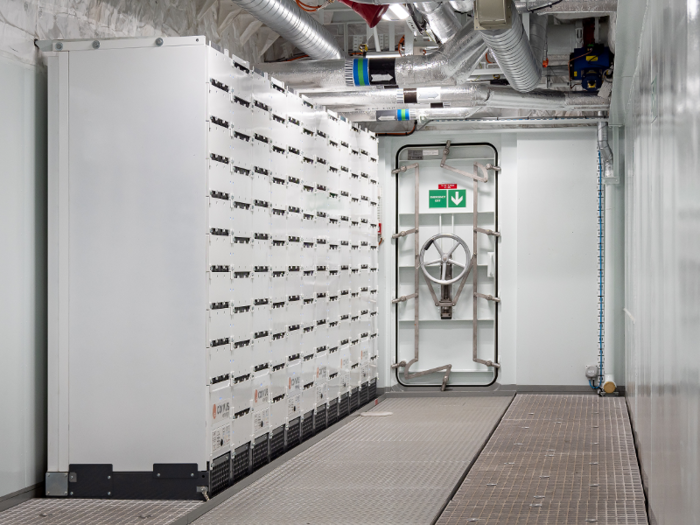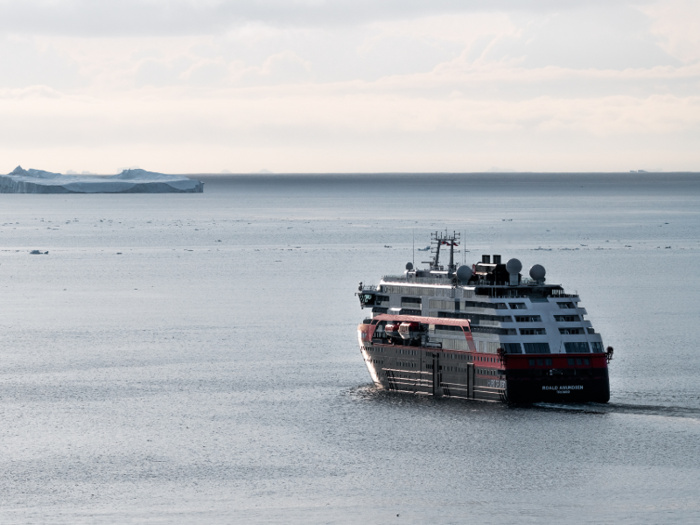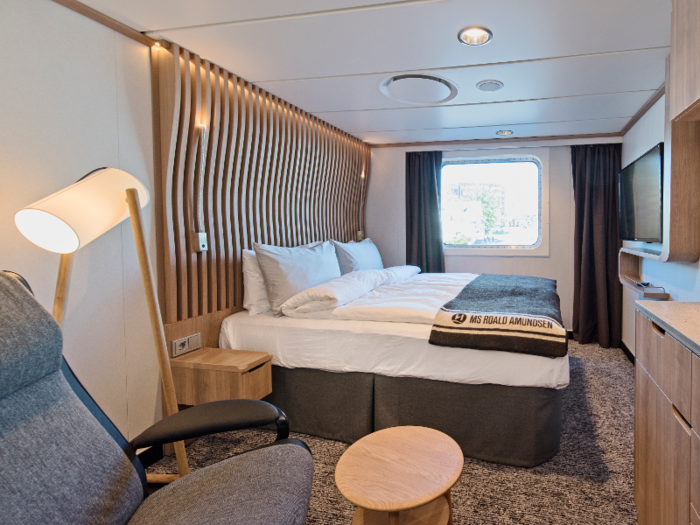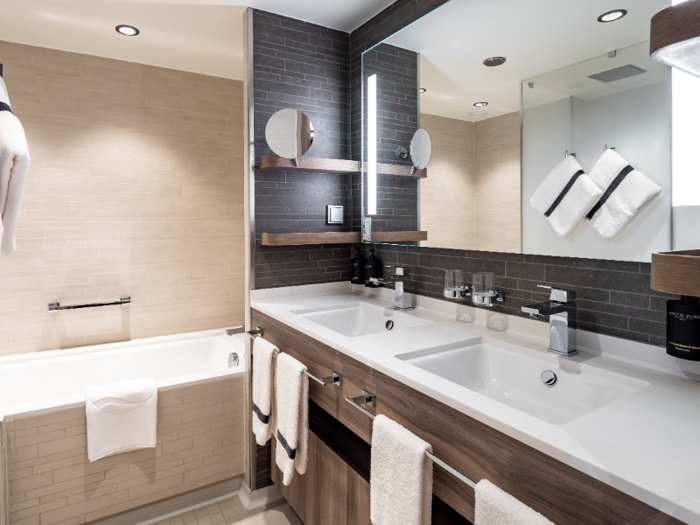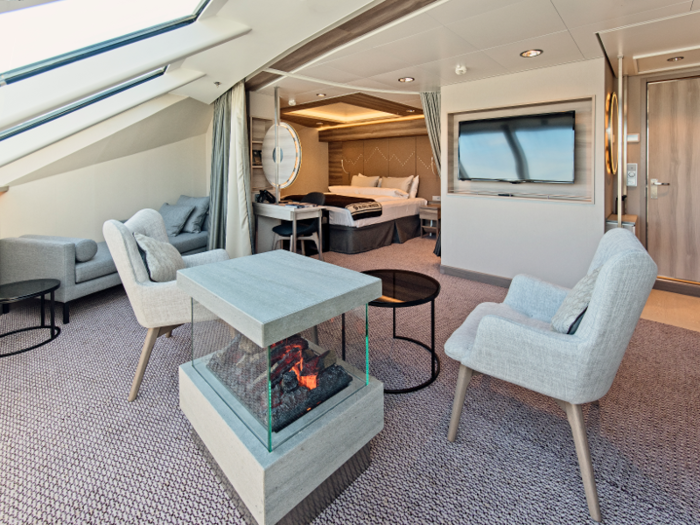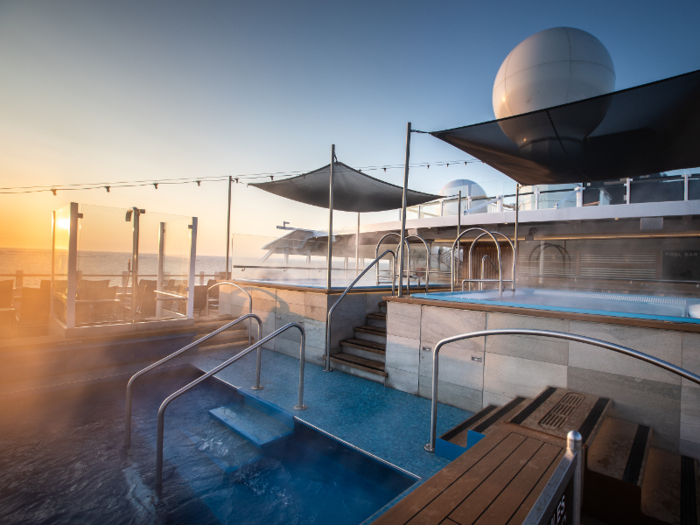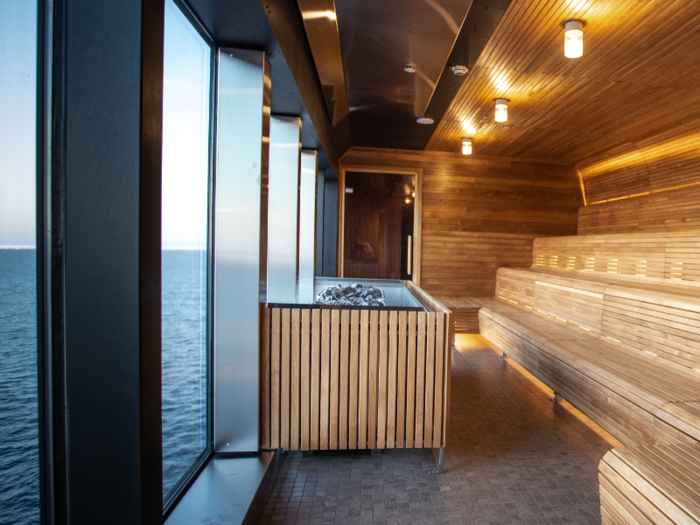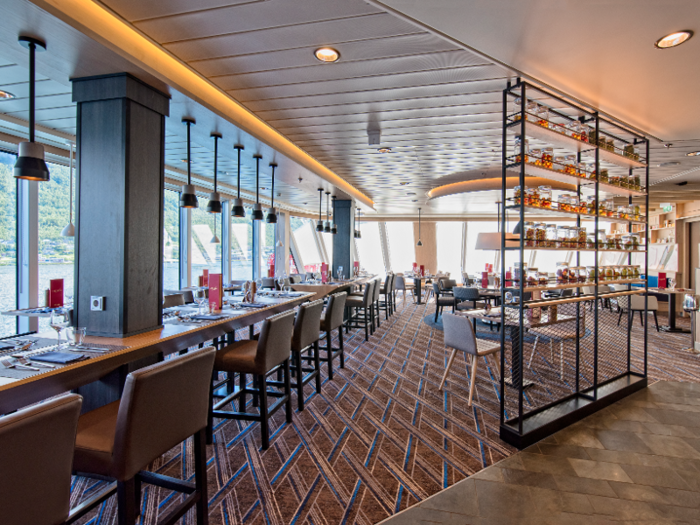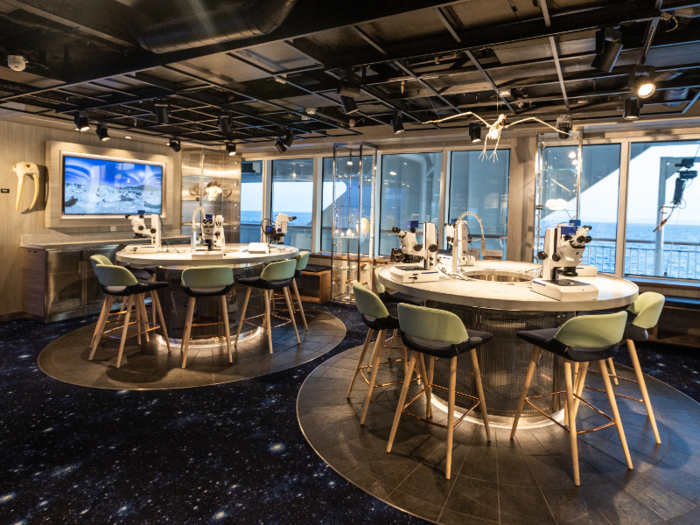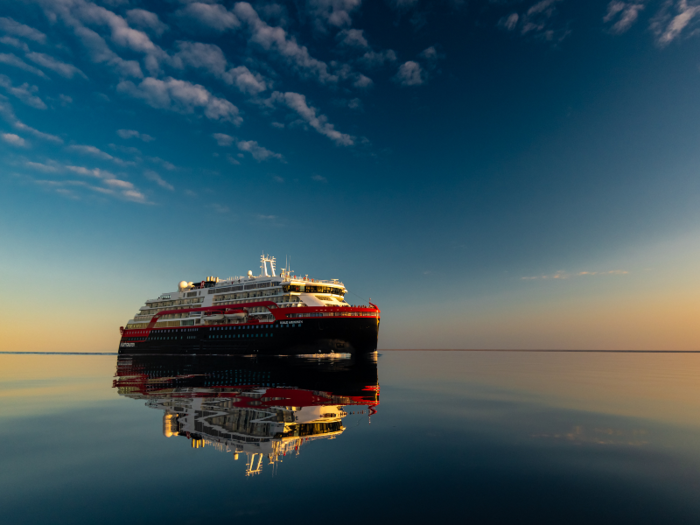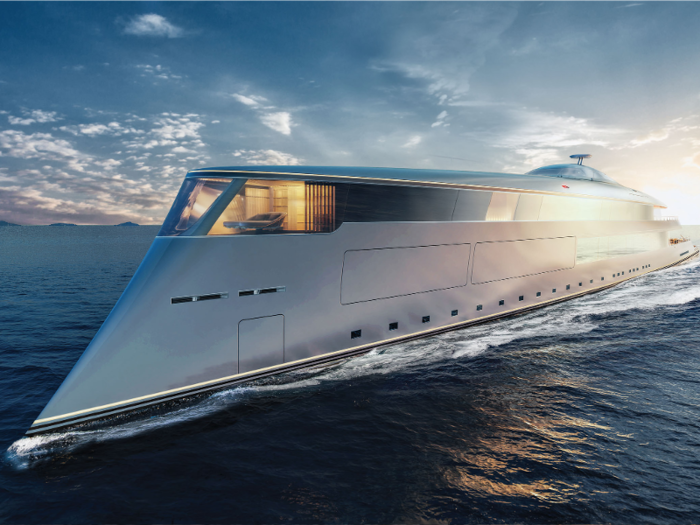It runs on Rolls Royce-built engines powered by low sulfur diesel fuel and batteries, which, according to the ship's developer, lowers the ship's CO2 emissions by 20%.
The cruise ship is currently on a full capacity, 18-day maiden voyage to Antarctica.
The maiden voyage started in Valparaíso, Chile before cruising south along the coast of South America toward the Drake Passage. From there, the ship spends three days in Antarctica before returning to Punta Arenas, Chile.
Passengers can disembark in Antarctica and partake in activities that include kayaking, hiking, whale-watching, and penguin-watching.
Source: Hurtigruten
The MS Roald Amundsen is just one example of the luxury travel industry becoming more eco-friendly in 2019.
Business Insider previously reported that a model for the first hydrogen-powered yacht was unveiled in September by Sinot, a Dutch yacht-design company. The 367-foot vessel will be completely powered by liquid hydrogen and fuel-cell technology. Its only emission will be water.
Beyond boats, luxury African safaris are also embracing the eco-friendly. In August, Business Insider's Katie Warren reported on a Botswana safari company equipped with conservation camps for children, where lessons on the environment, health, and nutrition are taught.
Increased attention to sustainability and conservation in the luxury travel sector play into the larger trend of "transformational travel." Ultimately, the ultra-wealthy want to leave their vacation with a transformative, emotional experience to bring home, and in some cases, want to make a positive impact on the places they visit.

